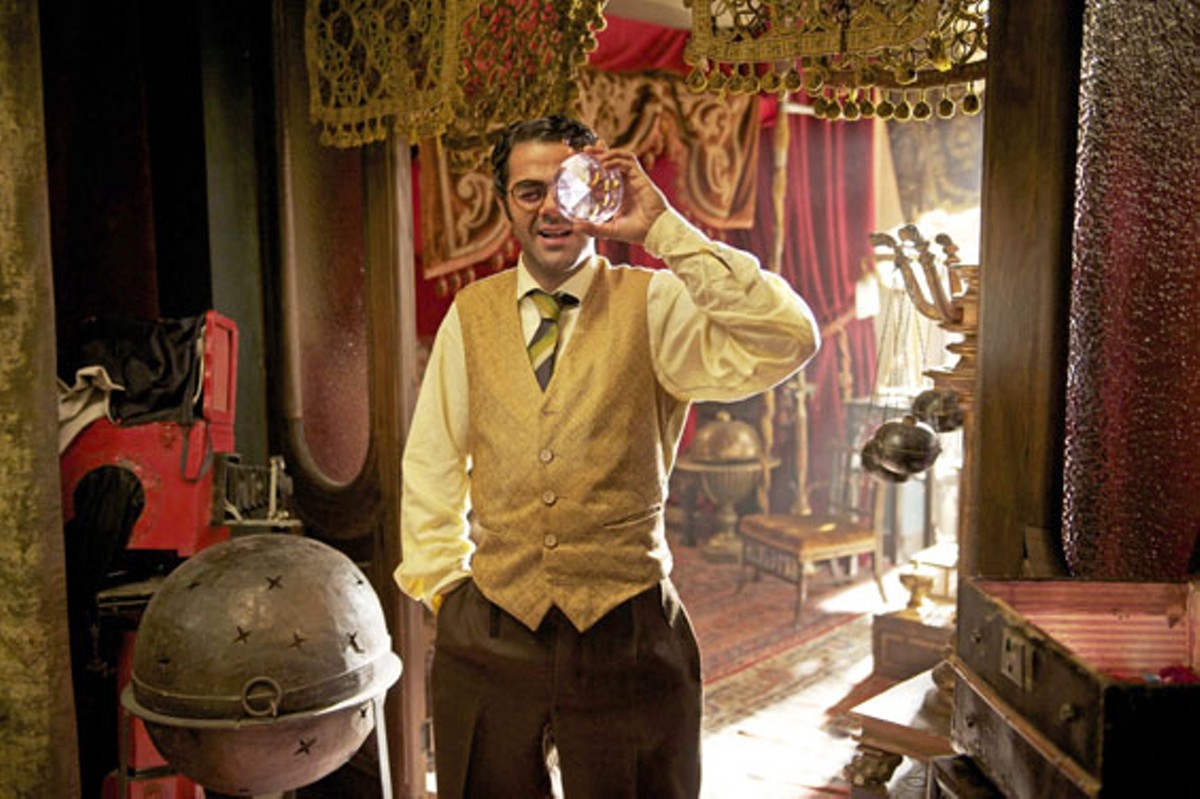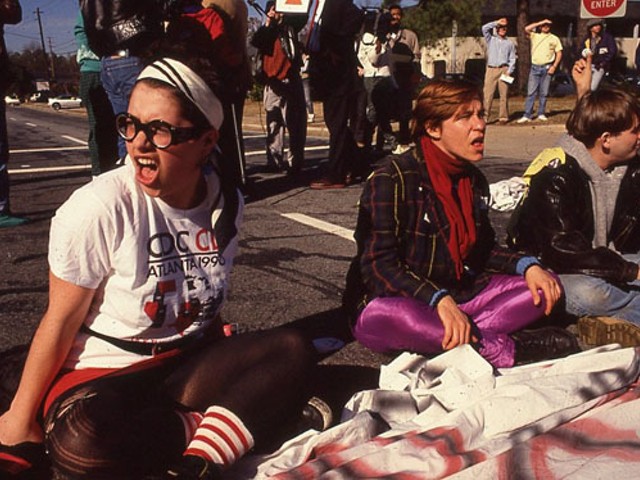"I have always been against this idea of the 'clash of cultures,'" Marjane Satrapi says. "It's the biggest piece of bullshit I've ever heard."
That's apparent from her films and graphic novels, which bridge worlds. Born in Iran, Satrapi emigrated to Europe with her family when she was a teenager in the '80s, and she now lives and works in France, where she has chronicled her childhood and adolescence in Persepolis and other books. After Persepolis made a splash, she and co-director Vincent Paronnaud turned it into an animated film.
Now the duo has followed it with Chicken With Plums, also adapted by her and Paronnaud from one of her graphic novels. In it, Satrapi moves from animation to live action and autobiography—even one heavily tinged with fantasy elements—to a mythologized exploration of her family history. Set in '50s Tehran, the film tells the story of the last eight days of the life of Nasser Ali (Mathieu Amalric), a lovelorn musician. The character is loosely based on Satrapi's great-uncle.
In the past few years, a number of films have been made outside Iran but set within the country: Shirin Neshat's Women Without Men, Maryam Keshavarz's Circumstance. However, though Satrapi praises Neshat's work, she doesn't identify with it. Her models are older. "My real wish is to make movies like Americans did," she says by phone from L.A. "I don't think cinema that speaks about Iran must always be in Persian. I'm in love with Lubitsch. He cast James Stewart or Gary Cooper as Czechs or Poles and made American films with a Mitteleuropa spirit. I made French films with an Iranian spirit but with actors from all over the world. The ethnicity and language doesn't matter."
Indeed, Chicken With Plums stars Amalric but also features an international cast including Isabella Rossellini, Portuguese actress Maria de Medeiros, Moroccan-French actor Jamel Debbouze, and Iranian actress Golshifteh Farahani. Satrapi didn't set out to say anything about the merits of multiculturalism, she says, but she's happy if that's what the results suggest. "We are all connected," she says. "If there is a clash of cultures, making Chicken With Plums with actors from so many different countries would be impossible."
Satrapi says she felt no awkwardness in switching from animation to live action. Despite her background in graphic novels, she was never particularly devoted to the format. "When Persepolis was made, I never said, 'I'm the new Miyazaki, and I'm going to make 15 more animated films,'" she says.
Instead, she had more practical reasons for making that first of her cross-cultural productions in animation. As she recalls: "It would be hard to cast my parents and relatives, because they're real people, and some of them are still alive. The story of Iran and the revolution is easily pigeonholed as belonging to the Third World. I was afraid people would see it as distant. But there's something about the abstraction of drawing that means anyone can identify with it. That gave me the will to make it as animation. Chicken With Plums is a love story, so it's more universal. It was very important to make it entirely in the studio because it's about a man who lives an interior life."
Satrapi credits her experiences growing up with inspiring her to shy away from simple, stereotypical characterizations. In Chicken With Plums, that means encouraging the audience to embrace a flawed, even suicidal, character. As she describes her approach: "You might not like Nasser, but he is what he is. At the end, you should have compassion for him." She goes on to attack the kind of visual shorthand that maligns people or countries: "In many films, you see someone light up a cigarette, and then you can expect to see him rape or kill someone. This extends to nationalities."
In Persepolis, Satrapi used herself as her own protagonist. She plans to follow Chicken With Plums with a film based on her family's history from 1900 to 1960, though it might not be the next film she makes. She explains that she likes to use autobiographical elements as a springboard for fantasy: "The fact is that I have a big family with lots of incredible stories. Of course, Chicken With Plums is a story about one person. He died 12 years before I was born. I knew that he was a great musician. When I wrote it, I was at a time in my life when I had questions about life and love and family. I made him a projection of myself."
At root, all stories are autobiographical, she believes. She explains: "Anybody who writes any kind of story, even if it's about zombies and aliens, writes about their own experiences. Mine are just more obvious."






